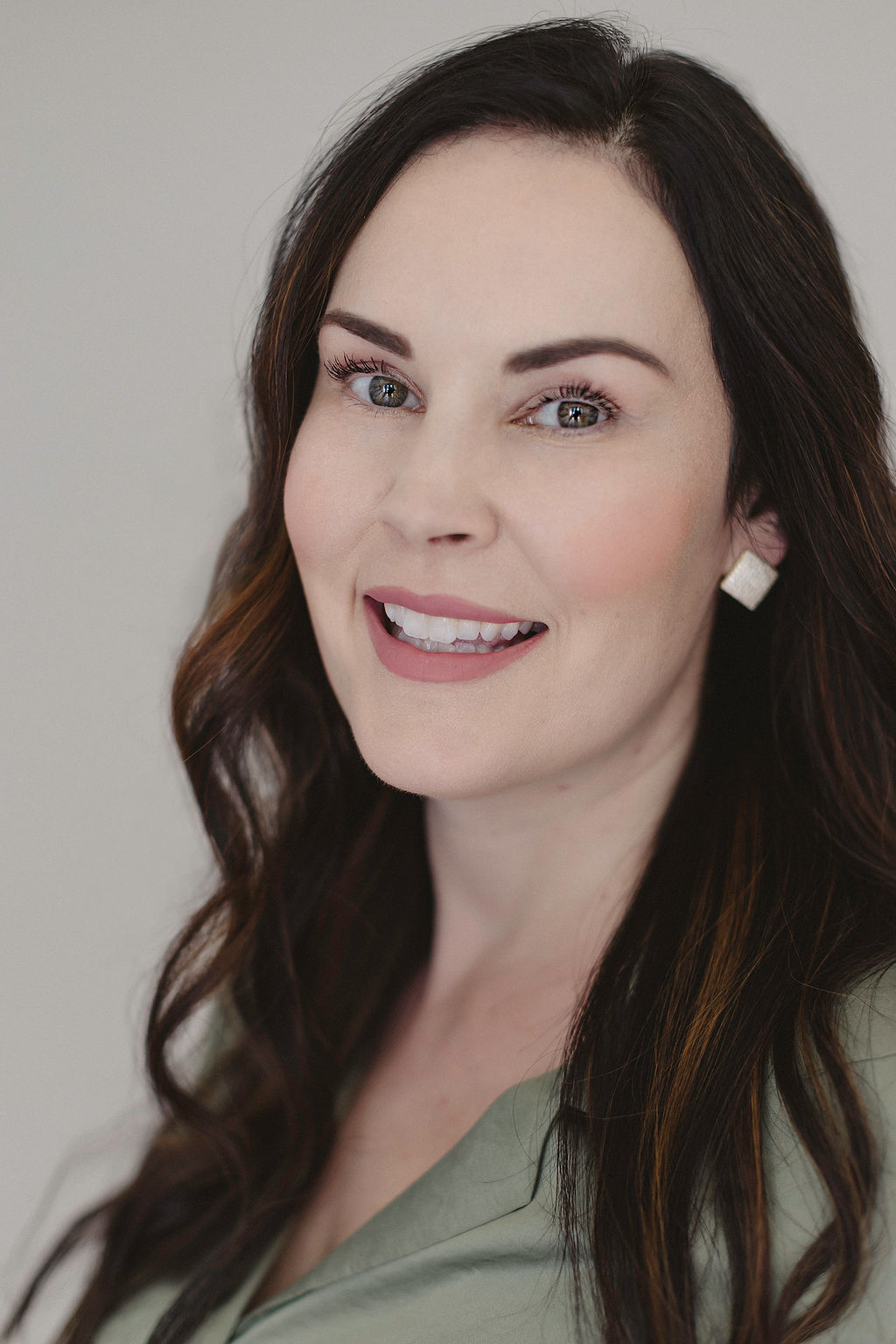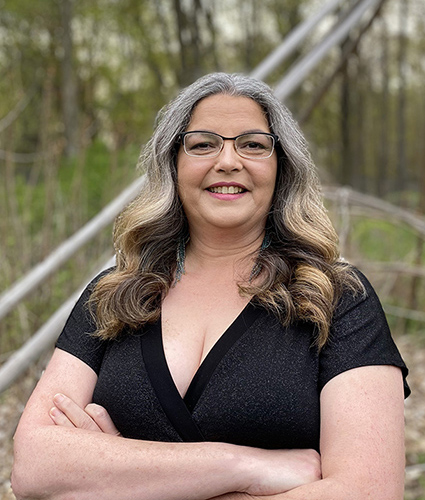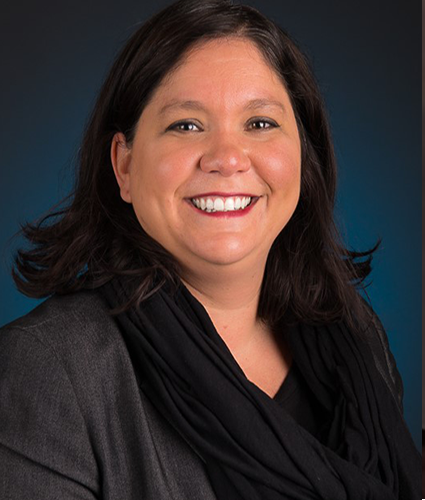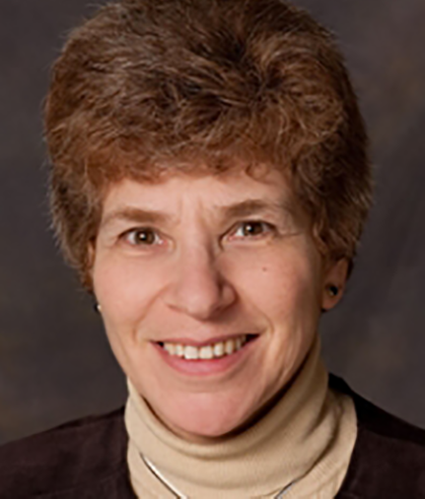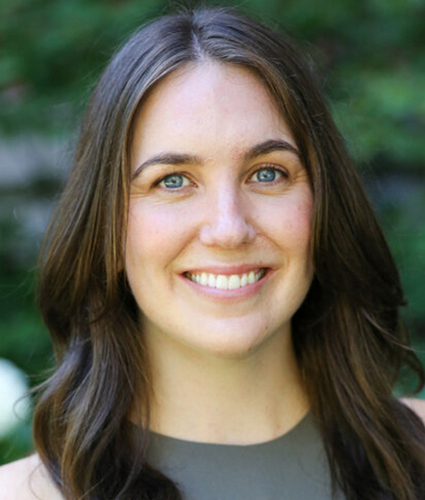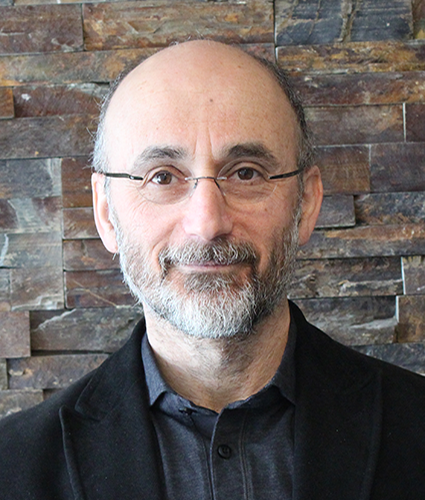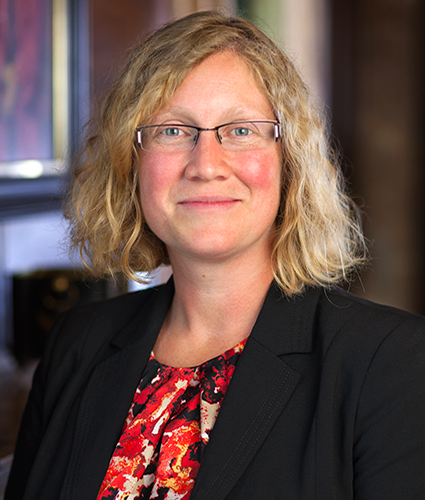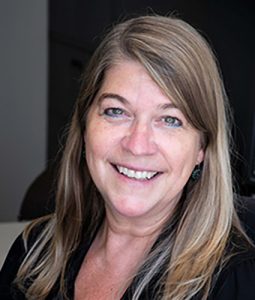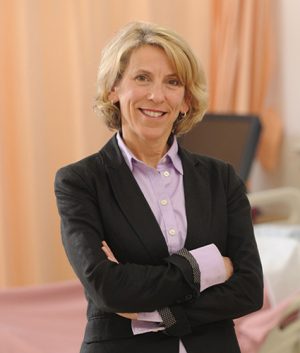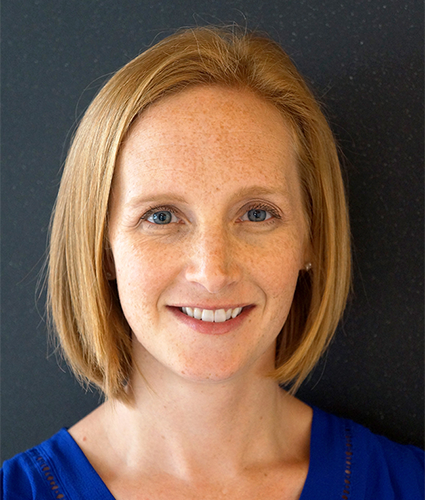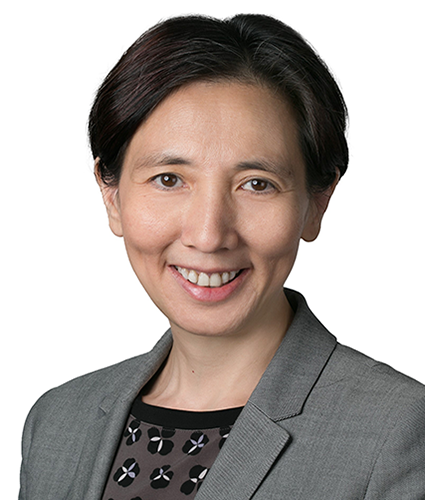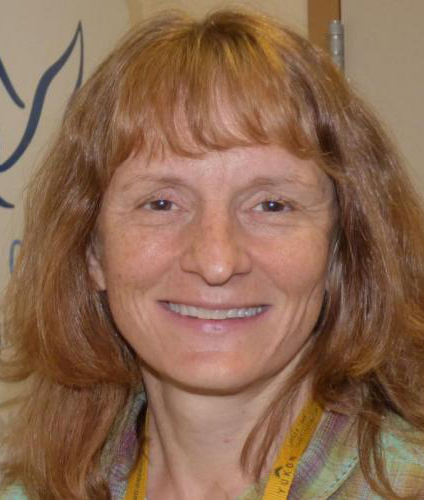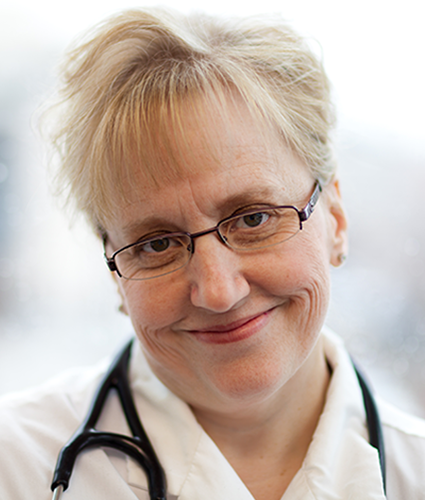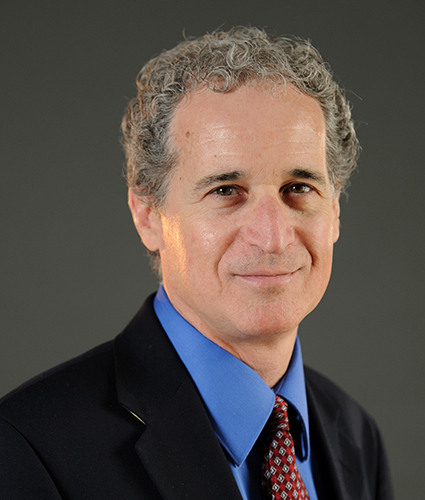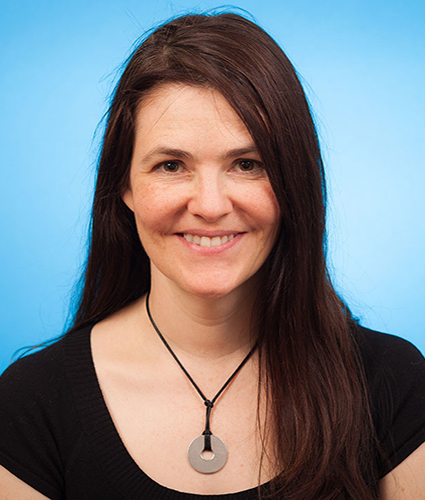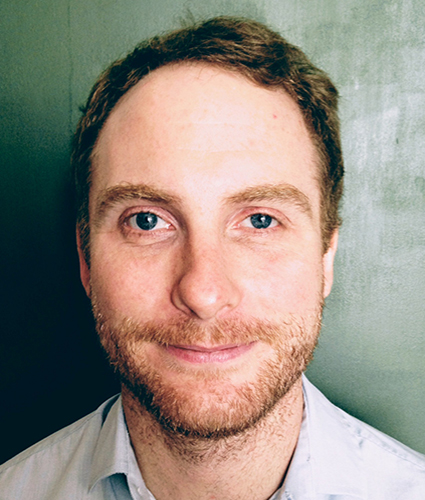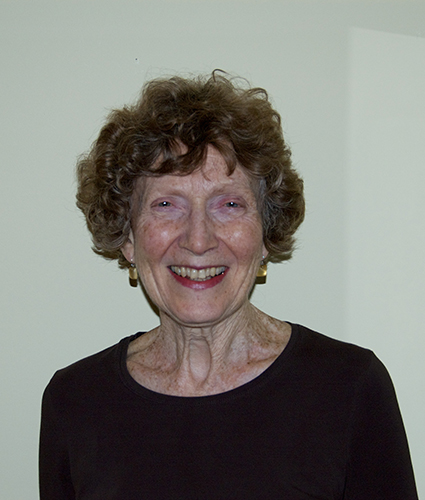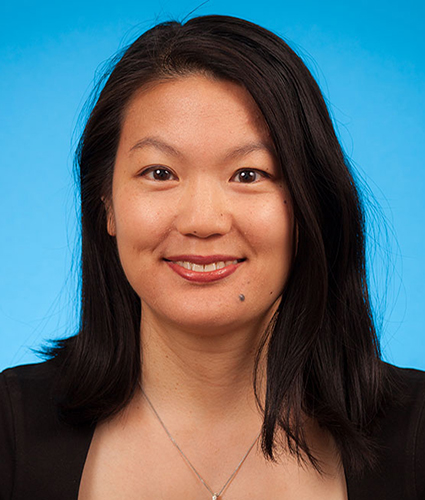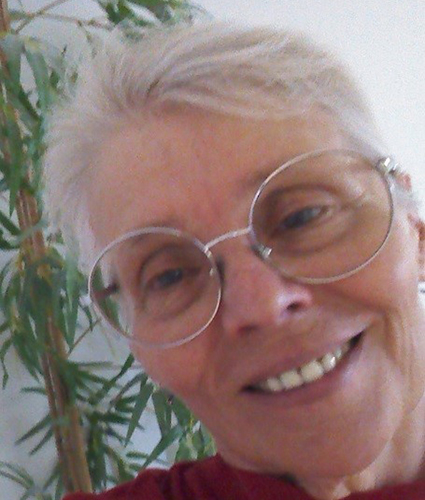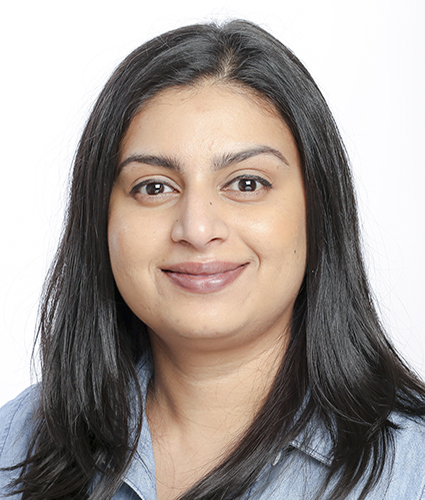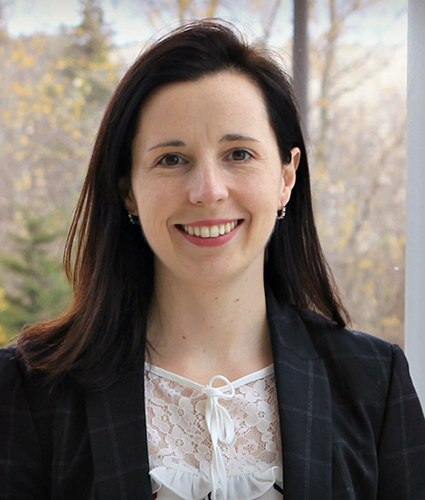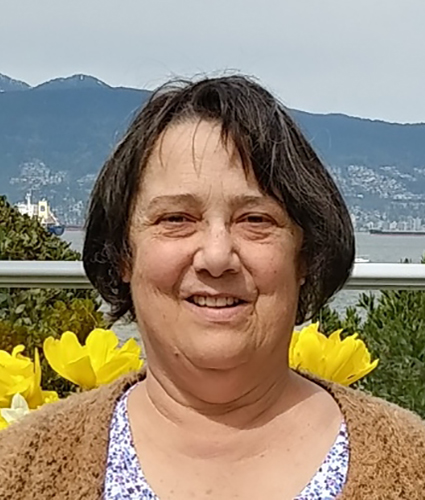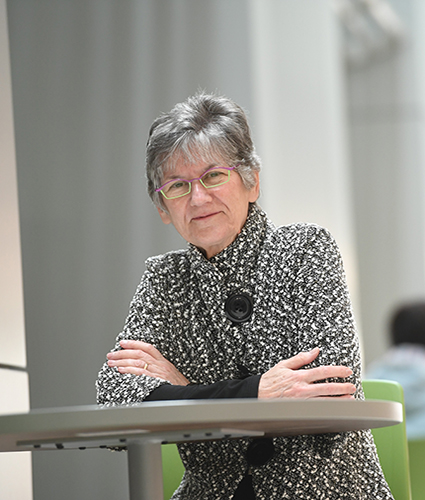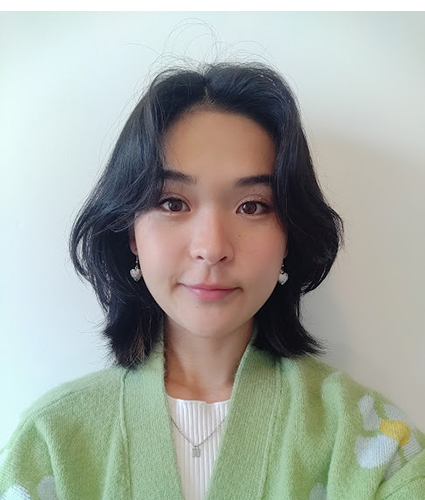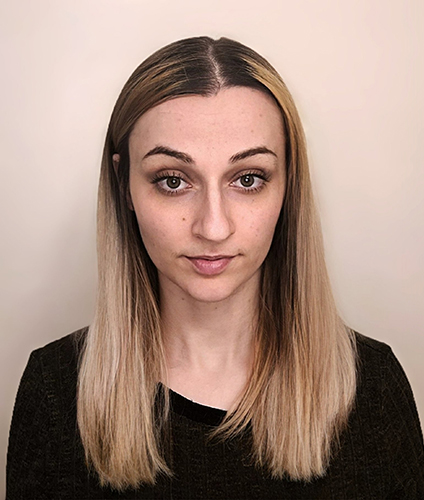Our People
Meet our people
The SPOR Evidence Alliance brings together a vibrant and diverse group of researchers, research staff, research trainees, healthcare providers, health system decision-makers, patient and members of the public. We have grown to over 400 registered members and counting.
To become a member of our growing network, complete the registration here.
Our pan-Canadian research initiative is led by nominated principal investigator Dr. Andrea Tricco based at the St. Michael’s Hospital, Unity Health Toronto along with 13 other co-principal investigators from across Canada.
Andrea Tricco
Andrea C Tricco, PhD, MSc
Dr. Andrea Tricco holds a MSc in Epidemiology and PhD in Population Health. She is a Scientist and the Executive Director of the Li Ka Shing Knowledge Institute, St. Michael’s Hospital, Unity Health Toronto. She is a Professor at the University of Toronto in the Dalla Lana School of Public Health & Institute of Health Policy, Management, and Evaluation. She is also an Adjunct and Associate Graduate Faculty with Faculty of Health Sciences at Ontario Tech University. She is Co-Editor in Chief of the Journal of Clinical Epidemiology.
Dr. Tricco’s research interests are related to responding to decision-makers (including policy-makers, healthcare providers, and patient partners) through knowledge synthesis. Her research focuses on advancing the science of knowledge synthesis and she is leading research projects related to rapid reviews, network meta-analysis, and scoping reviews. She currently holds a Tier 1 Canada Research Chair in Knowledge Synthesis for Knowledge Users and has been recognized as one of the most highly cited researchers in the world.
Andrea Tricco
St. Michael's Hospital, Unity Health Toronto
Andrea C Tricco, PhD, MSc @ATricco @andreatricco.bsky.social Dr. Andrea Tricco...
Angela Mashford-Pringle
Position: Dalla Lana School of Public Health, University of Toronto
Email: angela.mashford.pringle@utoronto.ca
Dr. Angela Mashford-Pringle is Algonquin (Timiskaming First Nation/Bear Clan). She is Associate Director at the Waakebiness-Bryce Institute for Indigenous Health, Dalla Lana School of Public Health at the University of Toronto. As the Indigenous Health Lead for DLSPH, she oversees the new Indigenous Post-Doctoral Fellowship program. She worked for over a decade at the federal government in Indigenous initiatives. Angela is the Director of the Master of Public Health – Indigenous Health program (MPH-IH), and Founding Editor of the Turtle Island Journal on Indigenous Health (TIJIH). She works with Indigenous communities with issues related to Indigenous health including cultural safety, land-based learning, climate action, and policy analysis and development.
For more information on Dr. Mashford-Pringle, please visit the AMP Lab website.
Angela Mashford-Pringle
Dalla Lana School of Public Health, University of Toronto
Dr. Angela Mashford-Pringle is Algonquin (Timiskaming First Nation/Bear Clan). She...
Annie LeBlanc
Annie LeBlanc, Ph.D., is a full professor in the Department of Family Medicine and Emergency Medicine at the Faculty of Medicine of Université Laval and a researcher at VITAM Sustainable Health Research Center. She is the Scientific Director of PASSERELLE, the national training entity of the Strategy for Patient-Oriented Research (SPOR) dedicated to inclusively and collectively developing, supporting, and maintaining scientific and practical capacities in patient-oriented research in Canada. She also holds a Canada Research Chair in Knowledge Mobilization and Integration in Practice. Her expertise focuses on mobilizing evidence within the healthcare system, advancing research methods and practices in real-world care contexts, and capacity building to optimize healthcare delivery while providing rapid and significant benefits for patients.
Annie LeBlanc, Ph. D., est professeure titulaire au Département de médecine de famille et de médecine d’urgence de la Faculté de médecine de l’Université Laval et chercheuse à VITAM Centre de recherche en santé durable. Elle est Directrice scientifique de PASSERELLE l’Entité nationale de formation de la Stratégie de recherche axée sur les patient.e.s (SRAP) dédiée à développer, soutenir et maintenir de manière inclusive et collective les capacités scientifiques et pratiques en recherche axée sur les patient.e.s au Canada. Elle est également titulaire de la Chaire de recherche du Canada en mobilisation et intégration des connaissances en pratique. Son expertise porte sur la mobilisation des données probantes au sein du système de soins de santé, l’avancement des méthodes et pratiques de la recherche dans un contexte réel de soins, et le développement des capacités dans l’optique d’optimiser la prestation de soins de santé tout en apportant des bénéfices rapides et significatifs pour les patient.e.s.
Annie LeBlanc
Full Professor, Université Laval
Annie LeBlanc, Ph.D., is a full professor in the Department...
Christina Godfrey
Christina Godfrey is an Associate Professor at Queen’s University School of Nursing and the Scientific Director/Methodologist for the Queen’s Collaboration for Health Care Quality: A JBI Centre of Excellence. As a specialist in research synthesis methodologies, she has received formal synthesis training through the Cochrane Collaboration and the Joanna Briggs Institute (JBI), and is a certified as a trainer in the JBI method of synthesis.
Dr. Godfrey provides methodological support to faculty, clinicians and graduate students internal to Queen’s University and to emerging synthesis groups and centres throughout Canada. She is a member of five international methodology committees focused on advancing the methodology of synthesis.
Christina Godfrey
Queen's University, Joanna Briggs Institute
Christina Godfrey is an Associate Professor at Queen’s University School...
Christine Cassidy
Dr. Cassidy is a registered nurse with expertise in implementation science, evidence-based practice, and behaviour change. She completed her BScN at the University of Prince Edward Island and PhD in Nursing at Dalhousie University. Dr. Cassidy also completed a CIHR Health System Impact Postdoctoral Fellowship at the IWK Health Centre and University of Ottawa with the Integrated Knowledge Translation (IKT) Research Network. Her program of research uses an IKT approach to design, implement, and evaluate evidence-based practices and knowledge translation interventions in pediatric care.
Christine Cassidy
School of Nursing, Dalhousie University
Dr. Cassidy is a registered nurse with expertise in implementation...
Christine (Tina) Fahim
Dr. Christine (Tina) Fahim (PhD, MSc) is an implementation scientist and leads the Team for Implementation, Evaluation and Sustainability at the Knowledge Translation Program, St. Michael’s Hospital. She holds an Associate Scientist position in the Department of Health Policy and Management at Johns Hopkins University, Bloomberg School of Public Health. She obtained her MSc in Health Systems at the University of Ottawa followed by a PhD in Health Research Methods, Evidence and Impact from McMaster University and a postdoctoral fellowship at the Johns Hopkins University School of Public Health, Department of Health Policy and Management. Dr. Fahim’s research focuses on the science and practice of knowledge translation to implement evidence-based interventions at the provider, organization, and systems level.
Christine (Tina) Fahim
St. Michael’s Hospital, Unity Health Toronto
Dr. Christine (Tina) Fahim (PhD, MSc) is an implementation scientist...
David Moher
David Moher is a Senior Scientist in the Clinical Epidemiology Program, Ottawa Hospital Research Institute, where he directs the Centre for Journalology (publication science ). He is also an Associate Professor in the School of Epidemiology and Public Health, Faculty of Medicine, University of Ottawa. He holds an MSc in epidemiology and PhD in clinical epidemiology and biostatistics.
Dr. Moher has been involved in developing the science of how to optimally conduct and report systematic reviews for most of his professional career. Another part of his research has focused on how best to develop reporting guidelines. He spearheaded the development of the CONSORT statement and the PRISMA statement. He also leads an active program investigating predatory journals and publishers. More recently he led a program to develop core competencies for scientific journal editors. He is actively developing a program to investigate alternatives to current incentives and rewards in academic medicine.
David Moher
Ottawa Hospital Research Institute
David Moher is a Senior Scientist in the Clinical Epidemiology...
Fiona Clement
Fiona Clement has extensive training in Health Services Research, Health Economics and Health Policy. She is the Director of the Health Technology Assessment Unit within the O’Brien Institute of Public Health, University of Calgary; a policy responsive research unit that completes evidence synthesis, economic evaluations, health technology assessments and reassessments in response to decision-makers’ needs. Her research interests include drug and non-drug technology reimbursement and cost containment policy, evidence in decision-making, and evidence in health policy development.
Dr. Clement was selected as the Canadian Harkness fellow in 2014; a unique opportunity to study US healthcare policy. She has also received the Maurice McGregor Award for outstanding leadership and excellence in HTA in Canada. She is the first from Alberta to be awarded either of these awards. As a result, in 2015, she was named one of Calgary’s Top 40 under 40 for her work in health policy.
Fiona Clement
University of Calgary
Fiona Clement has extensive training in Health Services Research, Health...
Heather Colquhoun
Heather Colquhoun is an Associate Professor in the Occupational Science and Occupational Therapy Department at the University of Toronto. She has over 29 years of experience as an Occupational Therapist and researcher. Her research focuses on the science of knowledge translation (KT) with an emphasis on the identification, prioritization and closing of evidence-to-practice gaps in healthcare.
Dr. Colquhoun’s research program includes application of behaviour change theory to implementation problems, the use of theory and theoretical constructs to design and understand interventions, optimizing audit and feedback as a KT intervention, investigation of reporting and terminology issues in KT science, and exploring methods of knowledge user engagement and barriers assessment for intervention design. She also has experience in knowledge syntheses methods including systematic and scoping reviews, including developing best practice methods for the conduct and reporting of scoping reviews.
Heather Colquhoun
University of Toronto
Heather Colquhoun is an Associate Professor in the Occupational Science...
Janet Curran
Janet Curran is a Professor in the School of Nursing at Dalhousie University and a Research Chair in Quality and Patient Safety at IWK Health, Nova Scotia Health and Dalhousie University.
She is the Scientific Lead in the Strengthening Transitions in Care lab at IWK Health where her program of research is focused on co-designing and evaluating best practice and policy change interventions to improve transitions in care for patients and families. Her co-design work is informed by collaborating with multiple stakeholders including patients, parents and caregivers, healthcare providers, and policy makers.
Janet Curran
Dalhousie University, Maritimes SPOR SUPPORT Unit
Janet Curran is a Professor in the School of Nursing...
Kathryn Sibley
Dr. Kathryn Sibley is dedicated to bridging the gap between research and practical applications in the healthcare industry.
With a background in Kinesiology from the University of Waterloo and graduate degrees in Rehabilitation and Medical Sciences from the University of Toronto, as well as a postdoctoral fellowship at the Toronto Rehabilitation Institute- University Health Network, Dr. Sibley is well-equipped to tackle the challenges of translating research into real-world solutions.
Her research focuses on fall prevention in older adults and optimizing balance exercise for this population. By engaging research users throughout the research process, Dr. Sibley is able to address critical research-to-practice gaps in rehabilitation and improve the health outcomes for Canadians.
As the Director of Knowledge Translation at the George & Fay Yee Centre for Healthcare Innovation, a member of the Integrated Knowledge Translation Research Network, and an affiliate scientist at the Toronto Rehabilitation Institute, Dr. Sibley is at the forefront of innovation in the field.
With a focus on fall prevention and extensive publication in the field, Dr. Sibley has received support and recognition from leading organizations such as the Canadian Institutes of Health Research, Natural Sciences and Engineering Research Council, and Knowledge Translation Canada.
Kathryn Sibley
Max Rady College of Medicine, University of Manitoba
Dr. Kathryn Sibley is dedicated to bridging the gap between...
Linda Li
Position: University of British Columbia, Arthritis Research Canada, BC SUPPORT Unit
Email: lli@arthritisresearch.ca
Dr. Linda Li is Professor and Harold Robinson/Arthritis Society Chair in Arthritic Diseases at the Department of Physical Therapy, University of British Columbia and holds a Canada Research Chair in Patient-oriented Knowledge Translation. She is also a senior scientist at Arthritis Research Canada where she leads the Arthritis & Implementation Science Program (https://arthritis.rehab.med.ubc.ca/). Her research focuses on the integration of wearables and apps to support health professionals in promoting physical activity and chronic disease self-management. Her work in implementation science includes studying strategies for engaging people with lived experiences in the research process. Dr. Li is a recipient of the American College of Rheumatology – Association of Rheumatology Professionals (ARP) Distinguished Scholar Award (2015) and the ARP Distinguished Educator Award (2022), recognizing her leadership in both arthritis research and education. In 2019, she was inducted as Fellow of the Canadian Academy of Health Sciences.
Linda Li
University of British Columbia, Arthritis Research Canada, BC SUPPORT Unit
Dr. Linda Li is Professor and Harold Robinson/Arthritis Society Chair...
Liris Smith
Position: Yukon SPOR SUPPORT Unit, Yukon University
BSc, BScPT, MScPT, PhD
Dr. Liris Smith holds two undergraduate degrees from the University of Saskatchewan, a baccalaureate of science (Anatomy), and a baccalaureate in Physical Therapy. Liris completed her master’s degree in Physical Therapy at the University of Alberta in 1997. She spent 27 years working as a physical therapist, supervisor, manager and director of care in the Continuing Care Division of Yukon Government. In 2018, Liris resigned from YG to dedicate her time to her PhD studies, graduating in 2021 with a PhD in Health Sciences from the College of Medicine, University of Saskatchewan. Liris has remained active in her profession, representing the territory on national committees for the Canadian physiotherapy association, and received one of 100 Centenary Medals of Honor in 2021 for her dedication to the profession.
Liris has been a sessional instructor at YukonU (and Yukon College) for more than a decade, teaching courses such as Anatomy and Pathophysiology for the Practical Nursing program. She is committed to working in partnership with Yukon First Nations, and all citizens who received health care services in the newly formed Strategy for Patient Oriented Research (SPOR) unit. Liris and her husband have a son, daughter and granddaughter, all residing in Yukon. She enjoys music, handicrafts and outdoor pursuits, such as recreational running, hiking and biking.
Liris Smith
Yukon SPOR SUPPORT Unit, Yukon University
BSc, BScPT, MScPT, PhD Dr. Liris Smith holds two undergraduate...
Sharon Straus
Position: St. Michael's Hospital, Unity Health Toronto, University of Toronto
Email: sharon.straus@utoronto.ca
Sharon E. Straus is a geriatrician and clinical epidemiologist who trained at the University of Toronto and the University of Oxford. She is the Director of the Knowledge Translation Program and Deputy Physician-in-Chief, St. Michael’s Hospital; Director, Division of Geriatric Medicine, University of Toronto; Vice Chair, and Professor, Department of Medicine, University of Toronto.
Dr. Straus currently holds a Tier 1 Canada Research Chair in Knowledge Translation and Quality of Care and has authored more than 400 peer-reviewed publications and 3 textbooks in evidence-based medicine, knowledge translation and mentorship. She is in the top 1% of highly cited clinical researchers as per Web of Science. She holds more than $57 million in peer reviewed research grants as a principal investigator. She has received national awards for mentorship, research and education.
Sharon Straus
St. Michael's Hospital, Unity Health Toronto, University of Toronto
Sharon E. Straus is a geriatrician and clinical epidemiologist who...
The SPOR Evidence Alliance has six standing committees to monitor progress towards our goals and to ensure all activities run according to our mandate.
International Advisory Committee
Co-chairs: Dr. Brian S. Mittman and Dr. Nancy Baxter
Brian Mittman
Brian S. Mittman, PhD is a Senior Scientist at the Kaiser Permanente Southern California Department of Research and Evaluation with additional affiliations at the University of Southern California (USC) and University of California at Los Angeles (UCLA), where he co-leads the UCLA Clinical and Translational Science Institute (CTSI) Implementation and Improvement Science Initiative. He previously served as a Visiting Professor in the UCLA School of Public Health and Anderson Graduate School of Management.
Dr. Mittman convened the planning committee that launched the journal Implementation Science and served as co-editor in chief from 2005-2012. He was a founding member of the US Institute of Medicine Forum on the Science of Quality Improvement and Implementation and chaired the National Institutes of Health (NIH) peer review panel on Dissemination and Implementation Research in Health in 2007 and 2010. He directed VA’s Quality Enhancement Research Initiative (QUERI) from 2002-2004. He currently serves on the Methodology Committee for the Patient-Centered Outcomes Research Institute (PCORI), where he leads the Methodology Committee initiative to develop and disseminate methods standards for studying complex health interventions. He is a member of the National Heart, Lung and Blood Institute (NIH) Board of External Experts, the Association of American Medical Colleges’ Advisory Panel on Research, and advisory boards for several additional U.S. and international research programs in implementation science. He is a past member of the AcademyHealth Methods Council and Education Council. He has led or supported numerous implementation and improvement science studies and has taught implementation science throughout the US and abroad.
Brian Mittman
Kaiser Permanente Southern California
Brian S. Mittman, PhD is a Senior Scientist at the...
Nancy Baxter
Position: University of Toronto, St. Michael's Hospital, Cancer Care Ontario
Email: Nancy.Baxter@unityhealth.to
Dr. Nancy Baxter holds the position of Professor of Surgery in the Department of Surgery at University of Toronto and is an Affiliate Scientist in the Li Ka Shing Knowledge Institute at St. Michael’s Hospital. In addition, she is a senior scientist in the Cancer Theme Group, Institute for Clinical Evaluative Sciences. She is a clinical epidemiologist and health services researcher interested in the effectiveness of cancer screening, long-term cancer survivorship of cancer, and the quality of surgical care. She has extensive experience in the use of administrative data and cancer registry data to evaluate long-term consequences of cancer care for adults.
Nancy Baxter
University of Toronto, St. Michael's Hospital, Cancer Care Ontario
Dr. Nancy Baxter holds the position of Professor of Surgery...
Eva Grunfeld
Dr. Grunfeld is a physician-scientist and Director of the Knowledge Translation Research Network, Health Services Research Program, at the Ontario Institute for Cancer Research. At the University of Toronto, Dr. Grunfeld holds the post of Giblon Professor and Vice-Chair (Research) at the Department of Family and Community Medicine; professor at the Institute for Health Policy, Management and Evaluation; and professor at the Dalla Lana School of Public Health. She also holds the position of Chair of the Institute for Cancer Research, Institute Advisory Board, at the Canadian Institutes of Health Research.
Dr. Grunfeld is a leader in cancer health services and outcomes research. Her research focuses on evaluation and knowledge translation of cancer health services, covering the entire spectrum of cancer control activities. She is internationally recognized for research on cancer survivorship, integration of care, and on cancer outcomes. Dr. Grunfeld uses a mixed-methods approach including randomized controlled trials (RCTs), qualitative research and outcomes research. Knowledge translation is an integral part of all her research activities. She has conducted several multi-centre RCTs on cancer survivorship which have influenced clinical practice guidelines and policies internationally. Dr. Grunfeld holds many peer-review grants as Principal Investigator and has served on many committees to further the goals of cancer control in Canada and internationally. She obtained her medical degree from McMaster University and doctoral degree in cancer epidemiology from Oxford University.
Eva Grunfeld
University of Toronto, Cancer Care Ontario
Dr. Grunfeld is a physician-scientist and Director of the Knowledge...
Matthew Page
Matthew Page is a Senior Research Fellow in the School of Public Health and Preventive Medicine at Monash University, funded by an ARC Discovery Early Career Researcher Award. He leads a programme of research on methods for evidence synthesis, which builds on the research undertaken during his PhD (2011-2015) and NHMRC Early Career Fellowship (2015-2019). Matthew’s research interests span many areas of evidence synthesis, including examination of the transparency and reproducibility of systematic reviews; methods to address reporting biases (e.g. publication bias, selective reporting bias); tools to assess risk of bias in randomized trials and non-randomized studies of interventions; and examination of selective inclusion of results in meta-analyses. He is leading the 2020 update of the PRISMA reporting guideline for systematic reviews and meta-analyses, and was an associate editor for the 2019 edition of the Cochrane Handbook for Systematic Reviews of Interventions. He frequently collaborates with clinicians on systematic reviews of interventions for a range of conditions, which often informs his research agenda.
Matthew Page
Cochrane Australia
Matthew Page is a Senior Research Fellow in the School...
Steering Committee
Co-chairs: Ms. Priscille Nice-Sanon and Dr. Annie LeBlanc
Priscille Nice-Sanon
Priscille-Nice Sanon is a sickle cell survivor. She was diagnosed with Sickle Cell type SS at birth. Due to complication to this disease, she has received over 100 blood transfusion and a bone marrow transplant. She is involved in patient engagement and has a passion for health research. She graduated with a master degree in pharmaceutical science: pharmacoepidemiology from Université Laval. She was also involved with the Quebec SPOR unit as a patient coordinator for University Laval and collaborated on several research projects as a patient. Being a patient partner allowed her to put her passion for research and volunteering at work while being able to make a lasting impact on health research.
Priscille Nice-Sanon
Patient Partner
Priscille-Nice Sanon is a sickle cell survivor. She was diagnosed...
Annie LeBlanc
Annie LeBlanc, Ph.D., is a full professor in the Department of Family Medicine and Emergency Medicine at the Faculty of Medicine of Université Laval and a researcher at VITAM Sustainable Health Research Center. She is the Scientific Director of PASSERELLE, the national training entity of the Strategy for Patient-Oriented Research (SPOR) dedicated to inclusively and collectively developing, supporting, and maintaining scientific and practical capacities in patient-oriented research in Canada. She also holds a Canada Research Chair in Knowledge Mobilization and Integration in Practice. Her expertise focuses on mobilizing evidence within the healthcare system, advancing research methods and practices in real-world care contexts, and capacity building to optimize healthcare delivery while providing rapid and significant benefits for patients.
Annie LeBlanc, Ph. D., est professeure titulaire au Département de médecine de famille et de médecine d’urgence de la Faculté de médecine de l’Université Laval et chercheuse à VITAM Centre de recherche en santé durable. Elle est Directrice scientifique de PASSERELLE l’Entité nationale de formation de la Stratégie de recherche axée sur les patient.e.s (SRAP) dédiée à développer, soutenir et maintenir de manière inclusive et collective les capacités scientifiques et pratiques en recherche axée sur les patient.e.s au Canada. Elle est également titulaire de la Chaire de recherche du Canada en mobilisation et intégration des connaissances en pratique. Son expertise porte sur la mobilisation des données probantes au sein du système de soins de santé, l’avancement des méthodes et pratiques de la recherche dans un contexte réel de soins, et le développement des capacités dans l’optique d’optimiser la prestation de soins de santé tout en apportant des bénéfices rapides et significatifs pour les patient.e.s.
Annie LeBlanc
Full Professor, Université Laval
Annie LeBlanc, Ph.D., is a full professor in the Department...
Elliot PausJenssen
Ms. Elliot PausJenssen is an older adult who feels fortunate to be able to work in retirement on issues she cared about during her years as social worker in geriatric assessment. These include senior-friendly health care and housing, age-friendly community development, human rights of older adults, elder abuse and senior-to-senior bullying. She has recently served on the Boards of the Saskatoon Council on Aging, the Canadian Network for the Prevention of Elder Abuse and the Canadian Association of Occupational Therapists (external member) and continues to be an active volunteer with SCOA. She is a member of the newly formed SK Human Rights Commission Advisory Committee. She has engaged in participatory research on age-friendly Saskatoon (a citizen led initiative), promoting aging in place, peer bullying in seniors subsidized housing, and an intervention program to influence residents interactions. She values involvement in the SPOR Evidence Alliance and its Knowledge Translation Committee. Ms. PausJenssen has been married over 50 years, and has 3 adult children and 5 grandchildren.
Elliot PausJenssen
Patient Partner, Saskatoon Council on Aging
Ms. Elliot PausJenssen is an older adult who feels fortunate...
Graham Macdonald
Graham Macdonald is a PhD candidate in UBC Medicine’s Rehabilitation Science program, co-supervised by Drs. Linda Li and Laura Nimmon. Graham is a qualitative researcher, trained in social science theory and methodology. Formerly, Graham was employed as a research assistant at Arthritis Research Canada, and a research coordinator at UBC’s department of Occupational Science and Occupational Therapy. Graham’s interests include patient and public engagement in research and healthcare, medical anthropology and sociology, political economy of health, chronic illness, and disability.
Graham Macdonald
Arthritis Research Canada, BC SUPPORT Unit
Graham Macdonald is a PhD candidate in UBC Medicine’s Rehabilitation...
Executive Committee
Chair: Dr. Andrea C. Tricco
Andrea Tricco
Andrea C Tricco, PhD, MSc
Dr. Andrea Tricco holds a MSc in Epidemiology and PhD in Population Health. She is a Scientist and the Executive Director of the Li Ka Shing Knowledge Institute, St. Michael’s Hospital, Unity Health Toronto. She is a Professor at the University of Toronto in the Dalla Lana School of Public Health & Institute of Health Policy, Management, and Evaluation. She is also an Adjunct and Associate Graduate Faculty with Faculty of Health Sciences at Ontario Tech University. She is Co-Editor in Chief of the Journal of Clinical Epidemiology.
Dr. Tricco’s research interests are related to responding to decision-makers (including policy-makers, healthcare providers, and patient partners) through knowledge synthesis. Her research focuses on advancing the science of knowledge synthesis and she is leading research projects related to rapid reviews, network meta-analysis, and scoping reviews. She currently holds a Tier 1 Canada Research Chair in Knowledge Synthesis for Knowledge Users and has been recognized as one of the most highly cited researchers in the world.
Andrea Tricco
St. Michael's Hospital, Unity Health Toronto
Andrea C Tricco, PhD, MSc @ATricco @andreatricco.bsky.social Dr. Andrea Tricco...
Fiona Clement
Fiona Clement has extensive training in Health Services Research, Health Economics and Health Policy. She is the Director of the Health Technology Assessment Unit within the O’Brien Institute of Public Health, University of Calgary; a policy responsive research unit that completes evidence synthesis, economic evaluations, health technology assessments and reassessments in response to decision-makers’ needs. Her research interests include drug and non-drug technology reimbursement and cost containment policy, evidence in decision-making, and evidence in health policy development.
Dr. Clement was selected as the Canadian Harkness fellow in 2014; a unique opportunity to study US healthcare policy. She has also received the Maurice McGregor Award for outstanding leadership and excellence in HTA in Canada. She is the first from Alberta to be awarded either of these awards. As a result, in 2015, she was named one of Calgary’s Top 40 under 40 for her work in health policy.
Fiona Clement
University of Calgary
Fiona Clement has extensive training in Health Services Research, Health...
Janet Curran
Janet Curran is a Professor in the School of Nursing at Dalhousie University and a Research Chair in Quality and Patient Safety at IWK Health, Nova Scotia Health and Dalhousie University.
She is the Scientific Lead in the Strengthening Transitions in Care lab at IWK Health where her program of research is focused on co-designing and evaluating best practice and policy change interventions to improve transitions in care for patients and families. Her co-design work is informed by collaborating with multiple stakeholders including patients, parents and caregivers, healthcare providers, and policy makers.
Janet Curran
Dalhousie University, Maritimes SPOR SUPPORT Unit
Janet Curran is a Professor in the School of Nursing...
Linda Li
Position: University of British Columbia, Arthritis Research Canada, BC SUPPORT Unit
Email: lli@arthritisresearch.ca
Dr. Linda Li is Professor and Harold Robinson/Arthritis Society Chair in Arthritic Diseases at the Department of Physical Therapy, University of British Columbia and holds a Canada Research Chair in Patient-oriented Knowledge Translation. She is also a senior scientist at Arthritis Research Canada where she leads the Arthritis & Implementation Science Program (https://arthritis.rehab.med.ubc.ca/). Her research focuses on the integration of wearables and apps to support health professionals in promoting physical activity and chronic disease self-management. Her work in implementation science includes studying strategies for engaging people with lived experiences in the research process. Dr. Li is a recipient of the American College of Rheumatology – Association of Rheumatology Professionals (ARP) Distinguished Scholar Award (2015) and the ARP Distinguished Educator Award (2022), recognizing her leadership in both arthritis research and education. In 2019, she was inducted as Fellow of the Canadian Academy of Health Sciences.
Linda Li
University of British Columbia, Arthritis Research Canada, BC SUPPORT Unit
Dr. Linda Li is Professor and Harold Robinson/Arthritis Society Chair...
Knowledge Translation Committee
Co-chairs: Ms. Elliot PausJenssen, Dr. Catherine Yu, and Mr. Graham MacDonald
Elliot PausJenssen
Ms. Elliot PausJenssen is an older adult who feels fortunate to be able to work in retirement on issues she cared about during her years as social worker in geriatric assessment. These include senior-friendly health care and housing, age-friendly community development, human rights of older adults, elder abuse and senior-to-senior bullying. She has recently served on the Boards of the Saskatoon Council on Aging, the Canadian Network for the Prevention of Elder Abuse and the Canadian Association of Occupational Therapists (external member) and continues to be an active volunteer with SCOA. She is a member of the newly formed SK Human Rights Commission Advisory Committee. She has engaged in participatory research on age-friendly Saskatoon (a citizen led initiative), promoting aging in place, peer bullying in seniors subsidized housing, and an intervention program to influence residents interactions. She values involvement in the SPOR Evidence Alliance and its Knowledge Translation Committee. Ms. PausJenssen has been married over 50 years, and has 3 adult children and 5 grandchildren.
Elliot PausJenssen
Patient Partner, Saskatoon Council on Aging
Ms. Elliot PausJenssen is an older adult who feels fortunate...
Graham Macdonald
Graham Macdonald is a PhD candidate in UBC Medicine’s Rehabilitation Science program, co-supervised by Drs. Linda Li and Laura Nimmon. Graham is a qualitative researcher, trained in social science theory and methodology. Formerly, Graham was employed as a research assistant at Arthritis Research Canada, and a research coordinator at UBC’s department of Occupational Science and Occupational Therapy. Graham’s interests include patient and public engagement in research and healthcare, medical anthropology and sociology, political economy of health, chronic illness, and disability.
Graham Macdonald
Arthritis Research Canada, BC SUPPORT Unit
Graham Macdonald is a PhD candidate in UBC Medicine’s Rehabilitation...
Catherine Yu
Catherine Yu is a Staff Endocrinologist at St. Michaels Hospital, Associate Professor of Faculty of Medicine and Dalla Lana School of Public Health, and Associate Scientist in the Li Ka Shing Knowledge Institute of St. Michael’s Hospital. After completing her undergraduate and postgraduate training in Internal Medicine and Endocrinology at the University of Toronto, she then completed a MHSc in Public Health. Her research focus is on the care of the patient with diabetes in the context of a health care team, revolving around the role of integrative health informatics tools, patient and clinician education and behaviour change, shared decision-making and medical humanities in improving quality of care. She has been Principal Investigator and Co-Investigator on several CIHR-funded projects. In addition, she is the past co-Chair of the Clinical Practice Guidelines Dissemination and Implementation Committee of Diabetes Canada, where-in she has developed evidence-based and innovative strategies to put guidelines into practice across Canada.
Catherine Yu
St. Michael’s Hospital, University of Toronto
Catherine Yu is a Staff Endocrinologist at St. Michaels Hospital,...
Erna Snelgrove-Clarke
Dr. Erna Snelgrove-Clarke is the Vice Dean (Health Sciences) and Director of the School of Nursing, Queen’s University. She is the CIHR Embedded Clinical Researcher in the Maternal Newborn Program at the IWK Health Centre and her program of research focuses on the identification of successful strategies for improving use of evidence in maternal newborn practices. Dr. Snelgrove-Clarke explores the transfer of knowledge through multiple methodologies, concentrating on the relationships of health care professionals, organizations, and decision-makers; including patient participation and voice. Areas of interest include women’s pain, obesity, breastfeeding, pregnancy, fetal health surveillance, practice development, and person centered practice.
Erna Snelgrove-Clarke
Queen's University
Dr. Erna Snelgrove-Clarke is the Vice Dean (Health Sciences) and...
PartnershipS Committee
Chair: Dr. Tanya Horsley and Ms. Rita Weibe
Tanya Horsley
Position: Royal College of Physicians and Surgeons, University of Ottawa, Society for Academic Continuing Medical Education
Email: thorsley@royalcollege.ca
Dr. Tanya Horsley is the Associate Director, Research, at the Royal College. She is also the Principal Scientist with over 100 peer-reviewed abstracts and publications. She is a proud faculty member within the School of Epidemiology and Public Health, University of Ottawa, where she teaches approaches to evidence syntheses including systematic and scoping review methods. Tanya leads a program of research looking at the formalization of integrated knowledge translation for the co-creation, use and influence of research and complex systems of care with an interest on patient & caregiver engagement. She is frequently sought after for her expertise in evidence synthesis approaches and work in reporting guideline development.
Tanya Horsley
Royal College of Physicians and Surgeons, University of Ottawa, Society for Academic Continuing Medical Education
Dr. Tanya Horsley is the Associate Director, Research, at the...
Rita Wiebe
Rita Wiebe comes to us, as a Patient Partner from a small city in Northern BC. Prince George BC is what she has called home for her entire life. With a background in “real-life, citizen centred” outreach, brings a Patient partner lens to rural communities and cities, so prevalent in our great Nation.
Her post secondary education also includes many facets of communication, social and media relations.
She is no stranger to writing content for blogs, media releases and websites and especially enjoys being able to apply that “plain language” humanistic approach!
She has been a Patient Partner in various capacities for the past decade, starting with Patient Voices Network in BC. She has held engagements with the BC Cancer Agency, has worked on a couple engagements with a cancer researcher from Eastern Canada, is part of the BC Support Unit Patient Council and others.
Rita became serious about the “Citizen approach” to Patient Engagement about two years ago, after the death of her son from pancreatic cancer. The passing was with assistance from the MAiD (Medical Assistance in Dying) program. At that time, it was within the first 1000 cases since legalization in Canada.
Her journey as a team caregiver created a painful awareness of the need for a more humanizing lens for patients and families, which continues to fuel her passion. Her other passion lies with the 45-64 age demographic in terms of living a purposeful, engaged life for as long as possible. She reminds us that the ages of 45-64 is the best time to intentionally unlearn bad habits and replace with healthier ones.
This preventative, holistic (body, mind & spirit) approach has gained more traction since COVID. The healthcare decision makers seem to recognize the importance of going into the 65+ years with less health concerns. From the Citizen (patient) perspective, she knows the importance of the “whole person approach” to wellness!
Rita Wiebe
Patient Partner
Rita Wiebe comes to us, as a Patient Partner from...
Kelly Mrklas
Kelly Mrklas is a national expert, co-investigator, and consultant supporting the development, execution and evaluation of knowledge translation (KT) and implementation science (IS) strategies on local, provincial, national and international scales. Kelly helps clinicians, researchers, decision- and policy makers, health care leaders and staff across Alberta turn high quality knowledge, innovations and improvements into daily work. Kelly works in partnership to design and troubleshoot implementation within workflow, care pathways, research and improvement programs for efficiency, effectiveness and sustainability. Kelly is a named KT/IS investigator, collaborator and/or knowledge user on 30 major research initiatives totaling more than $23M and facilitated over double that number of major funding submissions in the past 6 years. During the same time, she conducted more than 300 consults, gave 85 presentations, with roles as lead/co-lead in clinical and research initiatives involving knowledge synthesis, integrated KT, implementation and its evaluation, and sustainability. Kelly’s doctoral work focuses on tools for assessing the outcomes and impacts of health research partnerships and integrated KT, supported by a CIHR Foundation Scheme (FDN#143237).
Kelly Mrklas
Alberta Health Services
Kelly Mrklas is a national expert, co-investigator, and consultant supporting...
Charlene Soobiah
Charlene Soobiah is a PhD Candidate at the Institute for Health Policy, Management & Evaluation at the University of Toronto and a graduate student in the Knowledge Translation Program at St. Michael’s Hospital. Her dissertation focuses on evaluating the effectiveness of geriatrician-led care models and seeks to identify optimal care models to improve health outcomes. Charlene has a background in systematic reviews and knowledge translation, and has contributed to over 15 systematic reviews and several papers on knowledge synthesis methods. Charlene is focused on finding ways to engage patients, clinicians and policymakers in systematic review processes to optimize uptake of evidence into clinical practice.
Charlene Soobiah
University of Toronto
Charlene Soobiah is a PhD Candidate at the Institute for...
Training and Capacity Development Committee
Co-chairs: Ms. JoAnne Mosel and Dr. Jennifer Donnan
JoAnne Mosel
Subsequent to a 3 year term at a national accounting firm, JoAnne worked as an analyst in the public/private sector. The diagnosis of her child’s rare disorder led to a career pivot; doing so allowed for the time to engage with similarly diagnosed families and to watch (painfully slow) scientific discovery unfold over the years.
Her interest in research brought her to joining a Research Network in 2017. This was timely; opportunities for patient engagement were becoming more apparent.
To further her capacity, she pursued training through St. Michael’s Hospital KT Program PIR Course, McMaster University-KBHN FER Course, and other Patient and Public Research Partnership offerings.
Recent and on-going activities are diverse. These include providing the patient perspective at various stages of the research process; Beta tester for PORCCH; reviewing lay summaries; initiating a newsletter for members of PAN (Patient Advisors Network); serving on a Grant Review panel, on a Network KT Committee , on a project PFAC / RCT liaison; serving as a patient –partner on a Global database encompassing 2 rare diseases as well as on TACC (Transforming Autism Care Consortium); serving as member of MNI/H (Montreal Neurological Institute/Hospital) Patients Committee.
To keep inspired, she enjoys the manageable bites that “Behavioural Neuroscience Daily” brings. When interest is piqued but expertise lacking, she doesn’t hesitate to reach out to her designated champions of POR at academic and research institutions with questions or queries.
Paramount to JoAnne is patient partnership in helping set Canadian research priorities. To this end, she believes in academic persistence; that knowledge is a driver of empowerment and resilience.
JoAnne Mosel
Patient Partner, CHILD-BRIGHT Network
Subsequent to a 3 year term at a national accounting...
Jennifer Donnan
Dr. Jennifer Donnan is an Associate Professor with Memorial University School of Pharmacy. A pharmacist by training, her research focuses on pharmacy practice, cannabis policy and substance use prevention and harm reduction among youth. Jennifer has co-developed the Drug Education Centered on Youth Decision Empowerment (DECYDE) strategy. This comprehensive strategy includes educator training, lesson plans and activities for use in the classroom, and is expanding to include meaningful peer support for caregivers. Jennifer is also passionate about training the next generation of pharmacists to provide true patient centered care that challenges stigma, is culturally sensitive and trauma informed.
Jennifer Donnan
Associate Professor, Memorial University of Newfoundland
Dr. Jennifer Donnan is an Associate Professor with Memorial University...
Kelly English
Ms. Kelly English is a 62 year old who has difficult to treat Rheumatoid Arthritis. Ms. English also has permanent neurological damage from one of her meds on her right side. This has made activities difficult and increased pain. Despite this, Ms. English has made Rheumatoid Arthritis research her passion and goal. Participation in research, attendance at conferences, writing about her disease and being interviewed or speaking about it has helped her and others with arthritis. Working with researchers on teams as also increased her knowledge as opposed to simply being a participant in the research project. Ms. English has been a member of Arthritis Research Canada’s Arthritis Patient Advisory Board for 6 years – 3 of which were co-chair of the board. Ms. English also holds a part time job as a bookkeeper – dependent on how she is feeling at the time. Currently, Ms. English is on the Training and Capacity Development Committee of SPOR Alliance as patient co-chair. The experience has opened her eyes to a new area of research.
Kelly English
Patient Partner, Arthritis Research Canada
Ms. Kelly English is a 62 year old who has...
Marilyn MacDonald
Marilyn Macdonald is a Professor in the School of Nursing, and Director of the Joanna Briggs Centre of Excellence in the conduct of systematic reviews at Dalhousie University. She served as Theme Lead for Transitions in Care with the Canadian Frailty Network and Nova Scotia Lead for the Pan-Canadian Safety in Home Care study. She has a varied background in clinical nursing including general surgery, neurosurgery, cardio-vascular surgery, public-health nursing, home care, and a decade as a clinical nurse specialist. Her research population of interest is the older person in relation to home care, unpaid caregivers and care systems integration. Her research has contributed to mapping the terrain of safety in home care, recommending changes in home care delivery, and setting priorities for research in this domain.
Marilyn MacDonald
Professor, Dalhousie University
Marilyn Macdonald is a Professor in the School of Nursing,...
Sharmila Sreetharan
Sharmila Sreetharan is a research coordinator for the Central Coordinating Office of the SPOR Evidence Alliance. She holds a Master of Science degree from the Department of Psychology, Neuroscience & Behaviour from McMaster University. She has extensive experience in conducting primary research, experimental research design, literature reviews, and quantitative data analysis. She has a strong interest in working with decision-makers to improve patient care.
Sharmila is responsible for supporting the SPOR Evidence Alliance’s daily operations, managing the coordination of patient and public partner engagement, and providing input on SPOR Evidence Alliance’s initiatives and activities.
Sharmila Sreetharan
Research Coordinator
Sharmila Sreetharan is a research coordinator for the Central Coordinating...
Jacqueline Sally Co
Jacqueline Sally Co is a Research Assistant for the Knowledge Synthesis Team in the Knowledge Translation Program, Li Ka Shing Knowledge Institute of St. Michael’s Hospital, Unity Health Toronto. She completed her Bachelor of Health Sciences degree with an Honours Specialization in Rehabilitation Sciences from Western University. As an aspiring occupational therapist, she is committed to client-centered care and hopes to empower individuals and populations who face disproportionate inequities in health access and outcomes.
Jacqueline Sally Co
Research Assistant
Jacqueline Sally Co is a Research Assistant for the Knowledge...
Angelika Aziz
Angelika Aziz is a research assistant with the Central Coordinating Office of the SPOR Evidence Alliance, located at the Li Ka Shing Knowledge Institute of St. Michael’s Hospital. She completed her Bachelor of Science degree in Neuroscience at the University of Guelph. She has previous experience performing mental health-based research, stakeholder engagement, knowledge mobilization, and cultivating genuine connections with diverse individuals and stakeholders. Overall, she is passionate about improving health outcomes for diverse and underserved populations in her local community and abroad.
Angelika is responsible for providing administrative support, communication and dissemination, and supporting day-to-day operations of the SPOR Evidence Alliance.
Angelika Aziz
Research Assistant
Angelika Aziz is a research assistant with the Central Coordinating...
